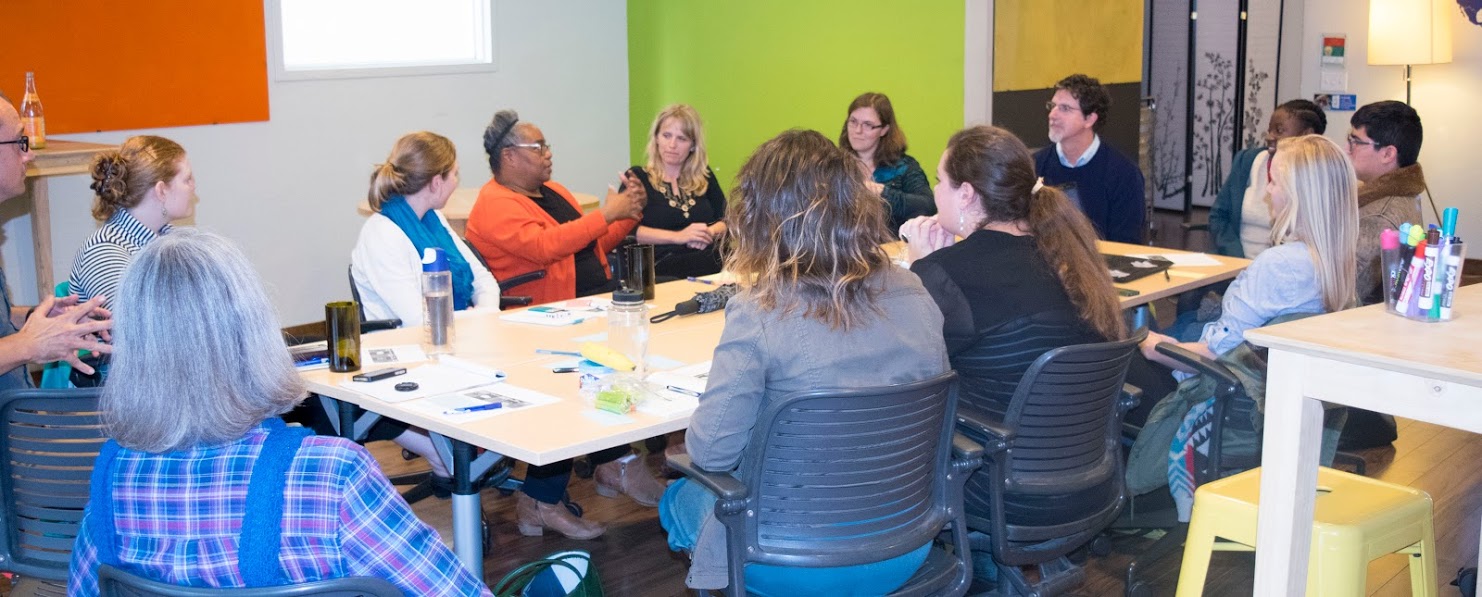For one minute on Thursday, October 27, I was not myself. Instead, I was Amy.
Before I was born, my family had a lot of suggestions about what my parents should name me. Because my birthday is December 7, my veteran grandfather suggested I be named Pearl Harbor. On the other side of the family, a lack of boys led to the suggestion to name me Buford (Buffy, for short) to carry on the family name. Thankfully, my parents didn’t choose either of those names and named me Amy after one of their friends. I did, however, end up loving Buffy the Vampire Slayer.
 When I returned to being Lucy, I learned that the point of becoming someone else for just two minutes was to understand empathy as it relates to storytelling. A version of this exercise was originally created by Narrative 4, a storytelling organization whose mission is to “Build a community of empathetic global citizens who improve the world through an exchange of personal narratives.” During one particular application of this activity, Narrative 4 partnered with two high schools in New York by pairing students from each of the schools together to share each other’s stories. You can read the piece about their interaction, The Tale of Two Schools, in the New York Times Magazine.
When I returned to being Lucy, I learned that the point of becoming someone else for just two minutes was to understand empathy as it relates to storytelling. A version of this exercise was originally created by Narrative 4, a storytelling organization whose mission is to “Build a community of empathetic global citizens who improve the world through an exchange of personal narratives.” During one particular application of this activity, Narrative 4 partnered with two high schools in New York by pairing students from each of the schools together to share each other’s stories. You can read the piece about their interaction, The Tale of Two Schools, in the New York Times Magazine.
What surprised many of the storytellers at the Imaginative Leap: Digital Storytelling & Empathy Workshop were the details their partner (story listener) chose to focus on when retelling the stories of their name. A passing comment or minute detail on the part of the storyteller in some cases became the main focus of the story listener’s retelling. People selectively choosing certain details and not others when they recount stories illuminates an important point that extends beyond this naming activity. As a group we suddenly realized that these interpretations and reinterpretations happen every day, in every interaction. This forced us to ask, “How much of what I say is actually being synthesized by others?”
This question has been rattling around my brain for about a week now, yet still has me seriously questioning almost every encounter I have. What are people really taking away from what I say? How am I differently shaping what I say based on the person I’m talking to? Unfortunately, I have no way of knowing, and that’s what makes empathy so difficult to understand. We can try as hard as we can to put ourselves in someone else’s shoes, but we will still be ourselves in their shoes.
Danny Pavitt made this dilemma clear in his IDSP Project storytelling fellowship project submission from the 2015-2016 school year. After the adapted Narrative 4 storytelling game, workshop participants watched Danny’s video, “A Day in Her Life.” The video shows the ins and outs of daily life for a Mapuche (indigenous group of Chile) tribe leader, with selected images, audio, and video recorded from the day she was visited by MIIS students. After watching the video [together with other workshop participants] and observing some discussion, I revealed to the group that I had also been on the Chile trip with Danny. My experience with the woman featured in his video was quite different from his, and the fact that neither Danny nor the leader were present at the workshop was the biggest lesson in empathy of all. Who was I to give my perspective on someone else’s story about another someone else?
It’s a question, just like the one about how our own perspectives shape what we hear, that is still marinating in my grey matter. Having now attended two of the four #IDSP17 workshops, I’m convinced that the only way to answer these questions is to continue to explore other stories and the empathy that accompanies them. Luckily, the December #IDSP17 happening will present opportunities for further conversations like these. Join us at the DLC on December 8 from 12:15-1:45 and keep your eyes peeled for more information. Hope to see you there!





You must be logged in to post a comment.